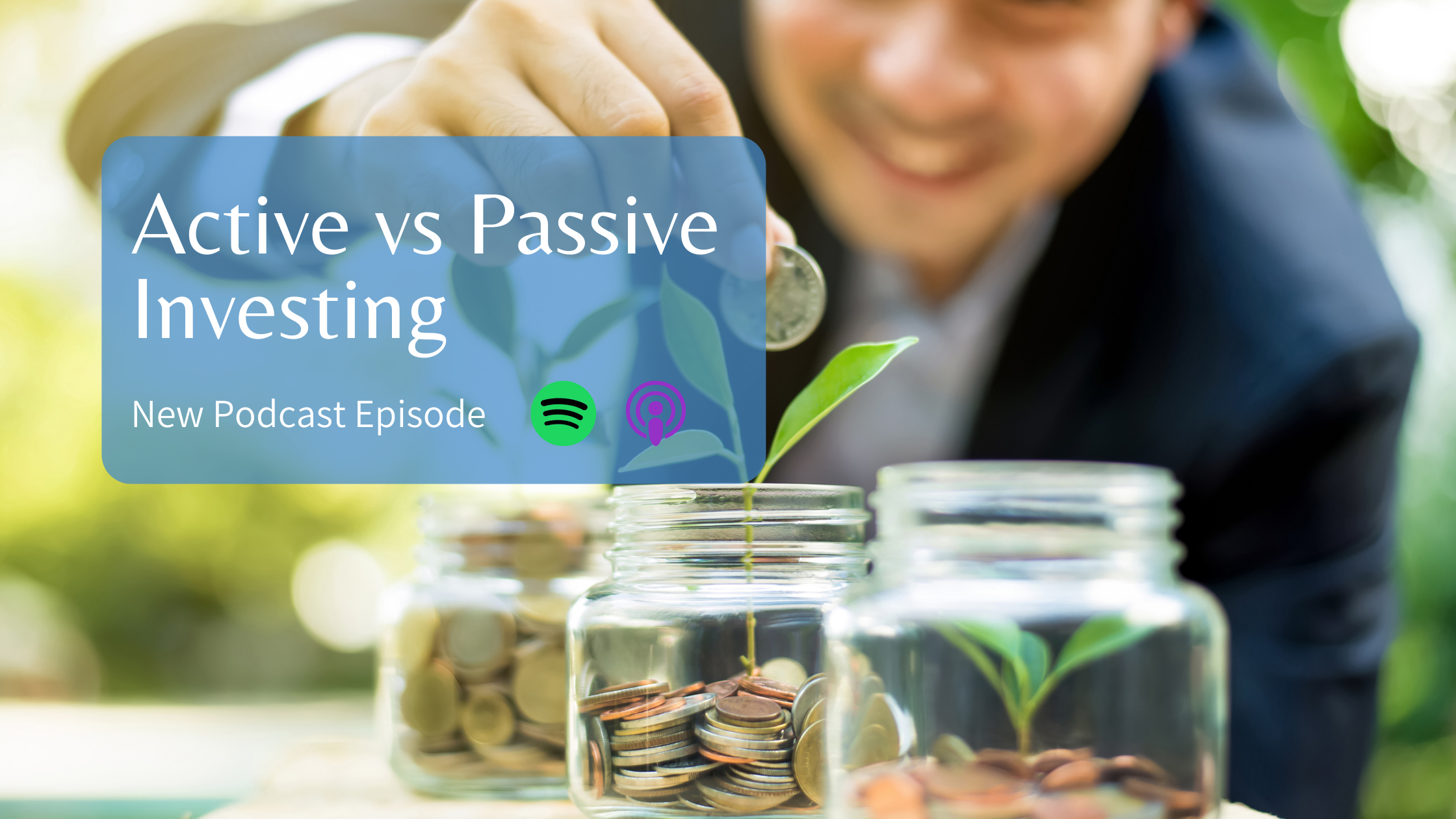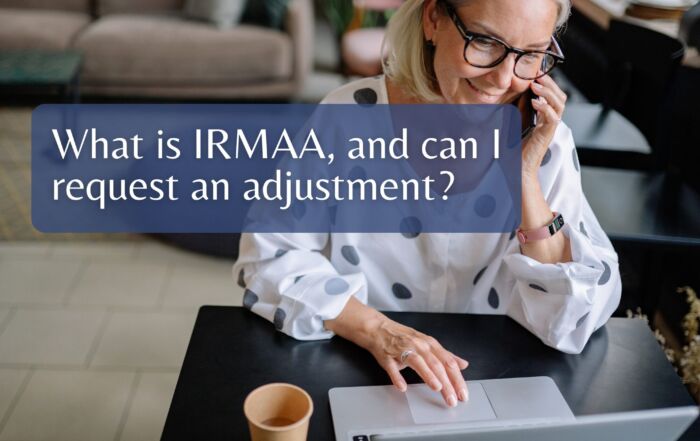
Active vs Passive Investing
On this episode of A Wiser Retirement Podcast, Casey Smith, Matthews Barnett, CFP®, ChFC®, CLU® and Brad Lyons, CFP® talk about the difference between active vs passive investing. The debate between these two approaches to investing is nothing new. It has actually been a long-time debate in our industry. There are two very passionate sides to this debate. Which approach is best?
Listen on Apple Podcasts or watch on YouTube:
SUMMARY:
Passive Investing
Passive investing is a “hands off” approach to investing. It doesn’t always mean it is just a buy and hold strategy. It is an investment vehicle that has a low turnover, low cost, and a high transparency for the investments in that investment product you are purchasing. It ties your returns to an index such as Dow Jones or the S&P 500 and many more, having greater inflows than active investing. There are over a million different indexes that are recorded today.
The biggest issue with the buy and hold strategy is that depending on market performance, you can have very heavily overweighted equities or underweighted bonds at some point. You need to rebalance at some point and not stay strictly passive. Rebalancing is managing your risk.
Active Investing
Active investing means that you are participating in market timing, downsize is going to be a lot bigger and might not be the most obvious. Active is a short term form of investing. Active managers will typically outperform in the short-term, but they don’t outperform in the long-term. Less than 30% of managers who beat the market in any given year are able to do it again the following year. A positive side of active investing is that it gives you the flexibility to move in or out of the market or certain sectors of the market. A disadvantage is that the good active managers are usually very expensive. You pay for staff who spend all of their time analyzing securities and the markets.
Risks of Fund Managers
Many people don’t realize that when you invest in a fund manager, you are taking on manager risk. You are outsourcing your investments to this person to manage them for you.
Why Stay Invested Long-term?
Invest for the long-term. To us, that means 10+ years, but we are really focused on the 20 year mark. When you build portfolios, you want to build them with long-term healthy asset classes. Active managers over a 20 year period won’t do you many favors, they are typically much better for short-term investing.
Value of a Financial Advisor
The value of a financial advisor isn’t about how many trades they make, but is about how they get you to your desired financial goals. Another advantage of hiring a financial advisor is that they take the emotion out of the investing. Quite often emotions will get in the way and muddle the person’s thought process.
Download our white paper on “3 Ways to Grow and Protect Your Portfolio”
TIMESTAMPS:
0:00 Intro
2:00 Passive Investing
11:19 Active Investing
18:03 Risks of Fund Managers
21:10 Why stay invested long-term?
28:20 Value of a Financial Advisor
LINKS:
Learn more about Casey Smith and connect with him on Twitter.
Learn more about Brad Lyons.
Learn more about Matthews Barnett.
CONNECT:
Twitter, Instagram, Facebook, LinkedIn, and YouTube.
Learn more about the Wiser Wealth Management Roundtable podcast and access previous episodes.
Share This Story, Choose Your Platform!
Wiser Wealth Management, Inc (“Wiser Wealth”) is a registered investment adviser with the U.S. Securities and Exchange Commission (SEC). As a registered investment adviser, Wiser Wealth and its employees are subject to various rules, filings, and requirements. You can visit the SEC’s website here to obtain further information on our firm or investment adviser’s registration.
Wiser Wealth’s website provides general information regarding our business along with access to additional investment related information, various financial calculators, and external / third party links. Material presented on this website is believed to be from reliable sources and is meant for informational purposes only. Wiser Wealth does not endorse or accept responsibility for the content of any third-party website and is not affiliated with any third-party website or social media page. Wiser Wealth does not expressly or implicitly adopt or endorse any of the expressions, opinions or content posted by third party websites or on social media pages. While Wiser Wealth uses reasonable efforts to obtain information from sources it believes to be reliable, we make no representation that the information or opinions contained in our publications are accurate, reliable, or complete.
To the extent that you utilize any financial calculators or links in our website, you acknowledge and understand that the information provided to you should not be construed as personal investment advice from Wiser Wealth or any of its investment professionals. Advice provided by Wiser Wealth is given only within the context of our contractual agreement with the client. Wiser Wealth does not offer legal, accounting or tax advice. Consult your own attorney, accountant, and other professionals for these services.





